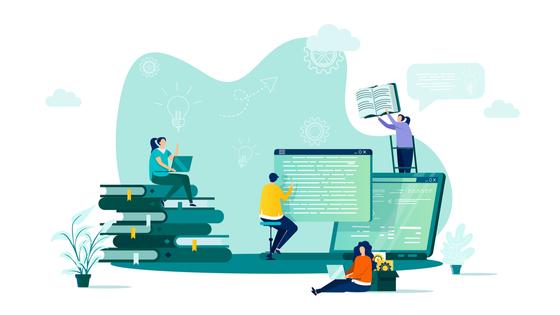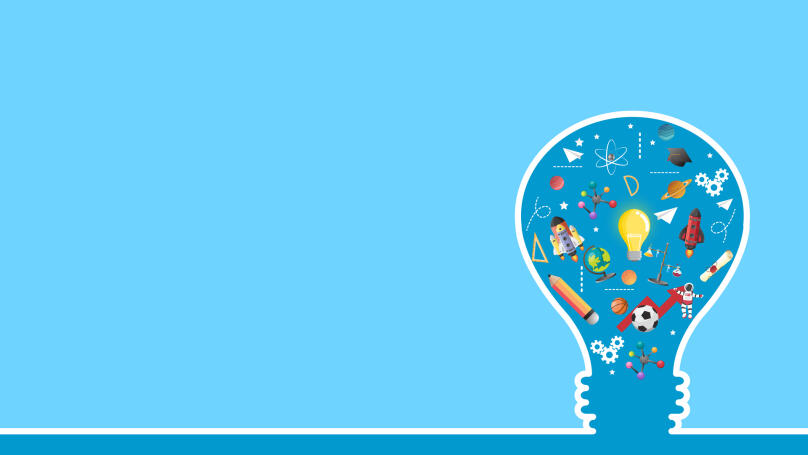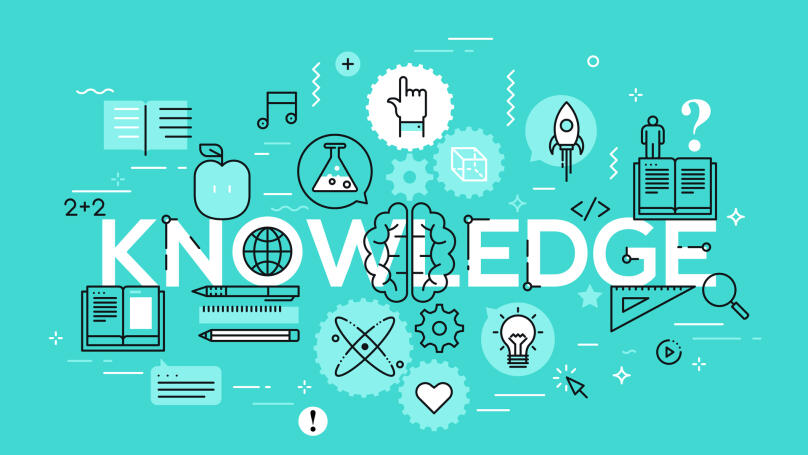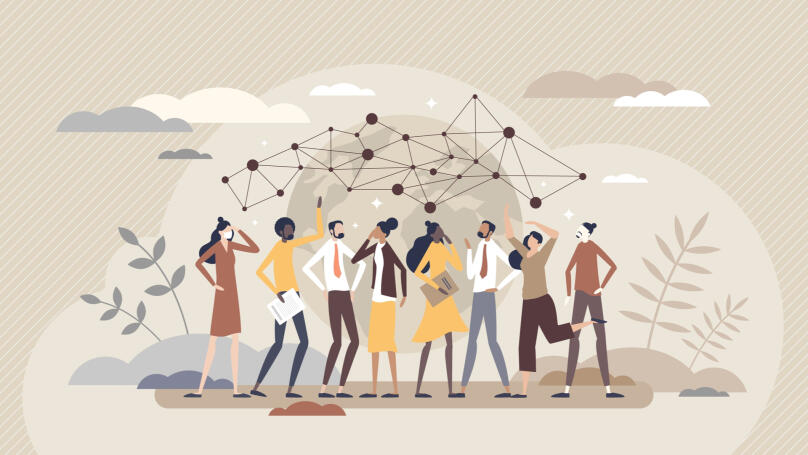Why does a person need education in the 21st century?
The demand for higher education has experienced unprecedented growth in the 21st century. What is higher education? Is it a fashionable trend or is higher education crucial for a modern person?

It cannot be denied that our life is changing rapidly. New technologies appear literally every month. Education is needed so that you can meet these modern challenges, stand out from the competition, and build a successful career.
Process information faster

In 2011, an article by Martin Gilbert and his team was published in Science magazine. The researchers estimated the total data reserves of all of humanity at 295 exabytes (an exabyte is a 21 digit number). Researchers estimate that total data reserves are increasing by 23% each year. Just imagine this volume! Today we need to process much more information than our ancestors. But that's not all! We also need to be able to quickly distinguish between trustworthy information and fake information, which is sometimes extremely difficult to do.
The New York Times estimated that 60% of YouTube traffic in 2020 was generated by bots disguised as humans. There was so much content generated by bots that employees began to fear an inversion: situations when platform algorithms begin to consider bots as people and block people for generating suspicious content that differs from the average. As a result, there is much more fake and low-quality content on the Internet.
A modern user needs to be an expert in anything that interests him in order to distinguish fake information from useful and reliable information. It takes a lot of time and energy to find and independently study reliable materials, as well as check the quality of the source.
So is it worth buying access to a training program if you can find the information on the Internet for free? Perhaps such a question is asked by everyone. But think about it for moment; if we learn from scattered information on the Internet, which is not necessarily reliable, then we spend extra time checking and systematizing it. In training programs, this work has already been done by specialists. This can significantly save you time. This is an important advantage because those who learn faster than others usually win.
Lectera’s Online Courses by topic
Choose what to believe

The abundance of fake information makes people mistrust all information. According to Statista , 52% of Americans who were surveyed in 2018 believed that news sites regularly post fake information. If a person doesn't know how to check the accuracy of the information, then he automatically stops believing any news. Because of this, he may miss out on something really important.
The ability to distinguish real news from fake news is becoming a necessity in life. The coronavirus pandemic has provoked a new wave of fake news. As a result, people behave imprudently and sometimes even pose a threat to their health and life. The International Federation of Library Associations and Institutions (IFLA) has prepared guidelines to help distinguish credible news from fake news. Here's what to do when fact-checking:
- Check to see what sources were used and whether or not the author properly notated them
- Look at the publication date (information must be up-to-date)
- Read the sources cited by the authors
- Focus your attention on the text, and not on its heading (it is often designed only to grab your attention and doesn't reflect its essence)
- Listen to experts' opinions
- Check to see if your own values and beliefs are affecting your perception of the news
First of all, we should trust ourselves. We must be confident in our knowledge. Confident that we can make a qualified judgment on any issue. That is why our knowledge base should be regularly replenished and updated. Refusing to study is refusing knowledge. It would not be possible to objectively assess the world around us and all of the incoming information we get without it.
Learning helps us connect with ourselves and make better decisions. But our inner feelings and the high level of fact-checking are far from the only advantages of getting educated. If we constantly improve our own level of knowledge, we will surely receive a higher position with a higher salary.
Improve your career prospects

Our life has turned into the Looking Glass: we "need to run as fast as we can just to stay in the same place", as Lewis Carroll wrote. A specialist who does not regularly update his knowledge runs the risk of not only receiving a lower salary, but also of being unemployed.
To effectively organize your training and get only benefit and pleasure from it, take the Lectera course "Learning as a skill: a tool for development and career growth". You will learn how to critically analyze information, implement the concept of lifelong learning in your life, shape your learning style, and learn to quickly master any skill. It will become easier and much more pleasant to study. And as we have already said, everything depends on your ability to educate yourself!
Many famous millionaires and billionaires such as Bill Gates, Mark Zuckerberg, and Elon Musk adhere to the five-hour rule invented by Michael Simmons. The essence of this rule is simple: no matter how busy you are, you always need to set aside at least an hour a day to learn something new.
When they make time in their busy schedules, billionaires choose the most convenient way to learn new things - reading. However, many professionals who work for hire are looking not just for knowledge, but for the opportunity to confirm their knowledge with a diploma or certificate, for example. But don't forget that modern employers are interested in the practical skills of workers most of all. Therefore, your goal should be to move on to solving practical problems as early as possible, and not get a certificate.
The ability to apply your knowledge in practice is essential for career development. It is not only important to absorb new information, but you should also train to apply it in practice. It helps to examine yourself regularly, as well. Make some time in the day to think quietly. You can start with 15 minutes a day. Use this time to consider your career path, prospects or opportunities, and how to use them to your advantage.
An ignorant person in the 21st century will be someone who doesn't know how to learn. A modern person needs to learn in order to take advantage of the best career opportunities. First, you might not be qualified for an important job. Second, career opportunities might not come about if you are not constantly learning new things and looking for these opportunities. Education in the 21st century is a must have for everyone who wishes to have a high income and recognition in society.
Share this with your friends via:
Latest News

A significant stage in the development of the alternative education system has begun in West Northamptonshire in the UK: the County Council is actively calling on parents, guardians, and trustees to participate in shaping the future of this key area.

Outwoods Primary School in Atherstone, Warwickshire, having experienced deep sadness after the loss of their famous cat, Silla, has found solace in a new pet – a Maine Coon named Aloysius O’Hara.

In modern universities, artificial intelligence, and in particular ChatGPT, is rapidly transforming from a controversial tool into a full-fledged student assistant.

An innovative educational project is gaining momentum in UK primary schools, aiming to change attitudes towards video games.

The Massachusetts Institute of Technology (MIT) presents MIT Learn – a revolutionary online platform that opens a “new front door” to access university knowledge and resources.












 Test: How Psychologically Mature Are You? Check Your Inner Foundation.
Test: How Psychologically Mature Are You? Check Your Inner Foundation.
 Test. Check Your Social Media Dependency Level!
Test. Check Your Social Media Dependency Level!
 Test: What Business is Right For You?
Test: What Business is Right For You?
 Test: How Prone Are You to Abusive Behavior as a Manager?
Test: How Prone Are You to Abusive Behavior as a Manager?
 Test. What superpower would you possess if you were a superhero?
Test. What superpower would you possess if you were a superhero?
 Test. What Should You Let Go of Before Winter Ends?
Test. What Should You Let Go of Before Winter Ends?
